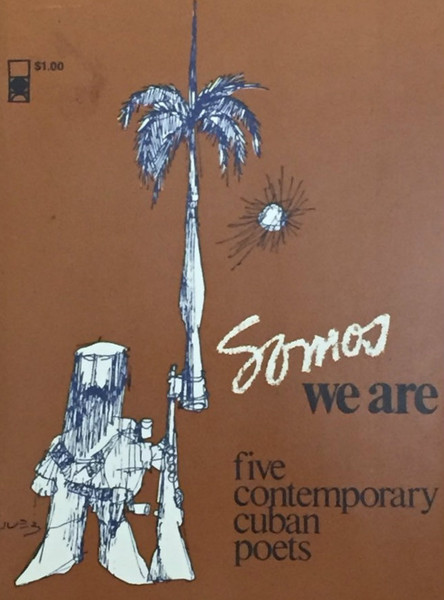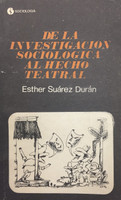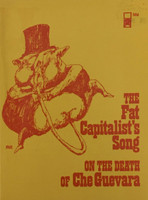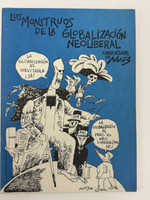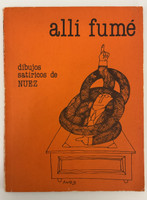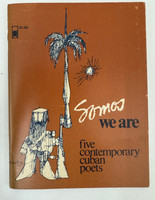- Travel
-
Exhibits
- Covers
- Immortal Cuba: Artists Take on Their Heroes
- Seattle Poster Exhibit
- Sandra Dooley & Alejandrina Cué
- The Art of Wayacón
- Cuban Folk Art
- Cuba In Black And White
- 25 Years of Cuban Art Space
- Summer Folk Art Expo
- ¡SPRING AWAKENING FROM CUBA!
- Celebrating The Art Of Cuban Women
- Celebrating Paper, Affordable Art from Cuba
- Art of the Revolution
- Outsider Art
- Lost and Found
- En la lucha: Celebrating Cuban Women and Their Art
- Cuban Art Stash
- 100 Fires: 5 Cienfuegos Artists' Work on Paper
- Waya + Monte! Magic Realism in Cienfuegos
- Viva Cuba Viva! Poster Show
- Cultivando Sueños
- Black Lives Matter in Cuba Jan 9-March 27
- Leandro Soto: Crónicas visuales
- Cuban Canvas
-
Archive
- Global Reflection 2018: Spirit and Community
- Exhibit in the cloud: Contemporary Works on Paper
- MADE IN CUBA! MINNEAPOLIS EXHIBIT
- Cuban Posters and Photography from CCS collection
- AUTUMN SALE! Sept/Oct 2017
- SPRING ARTS AND CRAFT SALE
- Vuelo Directo/Non Stop: Alberto & Alejandro Lescay
- The Many Faces of Fidel
- Somos
- Made in Cuba!
- The US empire in Cuban graphics
- Made in Cuba/Seattle exhibit
- Entre Nos
- Looking Back
- Cuban Art Space
- Membership/Donate
- About Us
- Cuba News
-
Su Negrin's cover design for "Somos/We Are" creates an evocative visual synthesis of Cuban revolutionary identity through spare, expressive line work. Against a warm burnt orange background, the composition features a stylized palm tree reaching skyward, a radiating sun, and a revolutionary figure holding a rifle alongside what appears to be a traditional drum or conga. The hand-drawn illustration by Cuban artist Nuez captures the fusion of cultural heritage and revolutionary commitment. The bilingual title—"Somos/we are"—rendered in contrasting cream script and bold black serif type, immediately establishes the book's mission of cross-cultural communication. The informal, sketchy quality of the illustration suggests both urgency and authenticity, while the warm earth tones evoke the Cuban landscape and revolutionary fervor.
Published by Times Change Press in 1970 as issue number 49 in their "Ko/Revolution" series and priced at one dollar, this anthology made contemporary Cuban revolutionary poetry accessible to American readers during the height of the U.S. blockade. The press—founded in the late 1960s to challenge American capitalism and imperialism—explicitly positioned itself against establishment publishing, stating that "material is copyrighted to prevent reprinting by establishment publishers for their profit" while freely granting permission for use aligned with their revolutionary purposes. They particularly sought material from women, the third world, youth, working and poor people to correct existing discrimination in communications.
Editor Anita Whitney, born in 1936, lived and worked in Cuba from 1960 to 1968, where she sculpted, wrote, and translated. She compiled this collection featuring five of Cuba's most celebrated poets: Nicolás Guillén, Belkis Cuza Malé, Guillermo Rodríguez, Nancy Morejón, and Victor Casáus. In her introduction "With Our Fists and Our Flaws," Whitney argues that political poetry exalting soldiers and regimes may seem distasteful to American revolutionaries precisely because "America as a nation is not poetic, at this stage of the game." She insists that authentic poetry and world poeticity can only survive through destruction of the American empire, and that revolutionary Cuban poetry—emerging from the oppressed—challenges the untenables of capitalist society. Most translations were completed by members of the American community in Cuba, with Whitney taking editorial liberty to refine them. This bilingual edition, illustrated throughout by Nuez, offered American audiences a glimpse into the emotional reality of life in revolutionary Cuba.
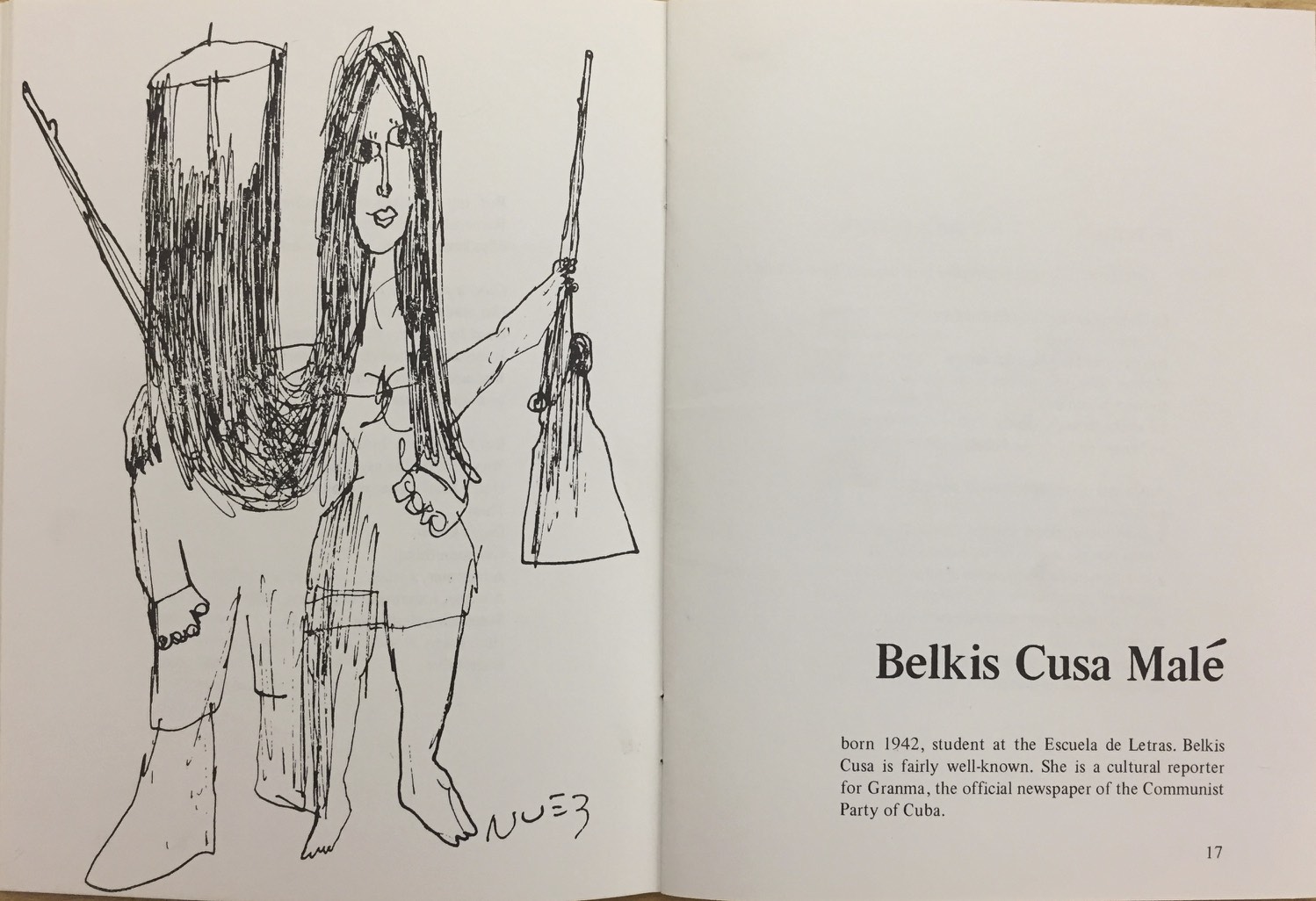
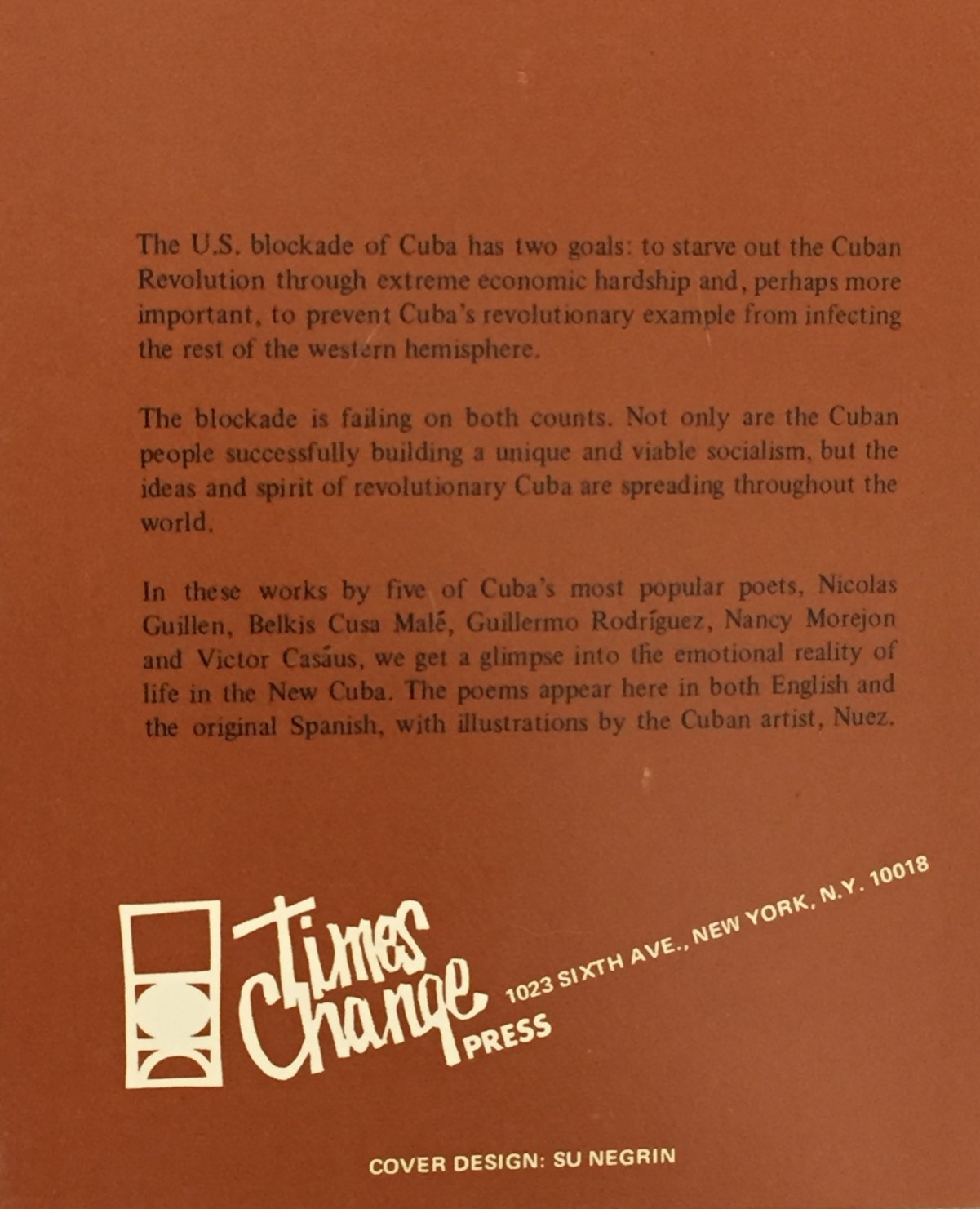
-
-
Discover More at the Center for Cuban Studies

